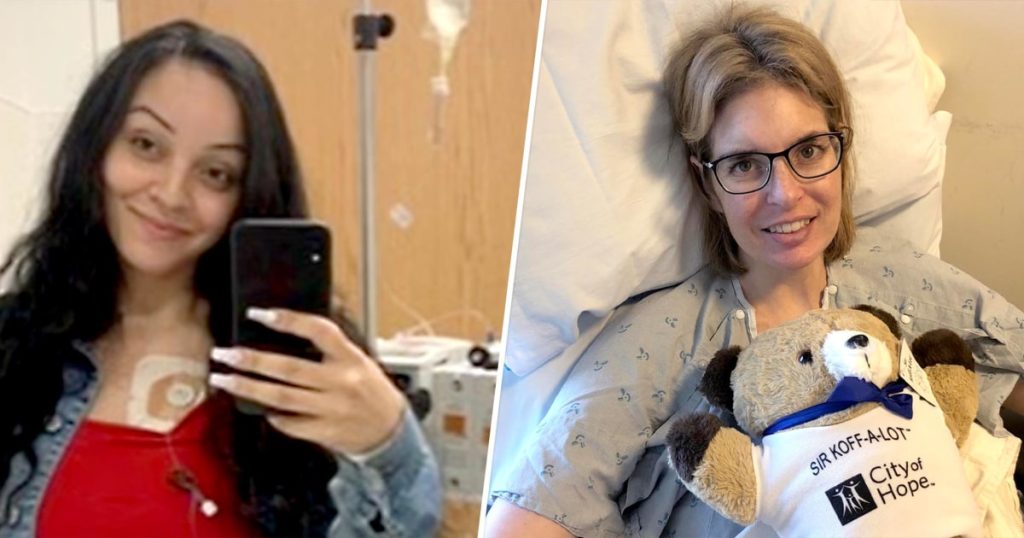Yasmine Garjales experienced a difficult fifth pregnancy, beginning with hyperemesis gravidarum. She noticed blood in her stool but was repeatedly dismissed by doctors who attributed it to hemorrhoids due to her age. Three weeks after giving birth, she was diagnosed with stage 3 colon cancer. As cases of colorectal cancer in young people increase, doctors are seeing more pregnant women present with the cancer. Symptoms of colon cancer can mimic changes that occur during pregnancy, making diagnosis tricky. Garjales’ grandmother had also died from colon cancer. After undergoing surgery to remove the tumor and lymph nodes, she began chemotherapy. Despite experiencing a difficult journey, she is currently cancer-free and undergoing monitoring.
Alyssa Kelly, who had lived with irritable bowel syndrome since her 20s, was diagnosed with stage 4 colon cancer during her pregnancy. Doctors discovered a tumor growing in her abdomen, with her baby pressed up against it. She underwent chemotherapy while pregnant to shrink the tumors and eventually had the tumor removed along with other affected organs. Kelly has undergone additional surgeries and rounds of chemotherapy and will most likely always have cancer. The rise in colon cancer in younger people is leading to more cases in pregnant individuals. Pregnancy can cause bowel changes and symptoms that overlap with colon cancer. It is essential for pregnant individuals to speak up about any unusual symptoms to ensure proper diagnosis and treatment.
Doctors have observed a shift in the demographic of colon cancer patients, with more people in their 30s and 40s being diagnosed with the disease. The onset of colon cancer during pregnancy can be challenging to diagnose due to overlapping symptoms with common pregnancy changes. Symptoms of colon cancer include changes in bowel habits, thinning of stool, rectal bleeding, fatigue, and anemia. Pregnant individuals should not hesitate to discuss any concerning symptoms with their doctors. It is crucial for physicians to consider the possibility of colon cancer in pregnant patients presenting with unusual symptoms.
Kelly emphasizes the importance of being patient with oneself while navigating an incurable cancer diagnosis. She credits her family for helping her through treatment and parenting. Grajales, who is currently cancer-free, discusses the anxiety and mental health challenges that come with living with uncertainty post-treatment. Both women advocate raising awareness about colon cancer and encourage others to speak up if they notice new symptoms or health issues. They hope to educate others about the importance of advocacy and proactive healthcare.
Living with an incurable cancer diagnosis requires patience, strength, and resilience. Kelly focuses on enjoying time with her son and husband, while Grajales embraces life in a new way post-cancer. Both women share their stories to inspire and inform others about the importance of early detection and advocacy for one’s health. Through their experiences, they hope to raise awareness and support others facing similar challenges. Their journey highlights the importance of listening to one’s body and seeking medical attention when necessary.


